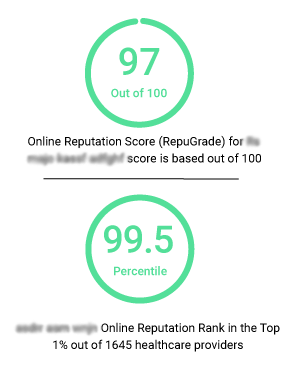How Vertical Search Is Changing the Nature of Search
The word Google needs no introduction as it has been the main ground for eager consumers searching for answers related to products and services. However, the nature of online search engines is changing with the introduction of other sites offering similar services but with more narrowed results. These include Amazon, eBay or PriceGrabber.
A recent study examining online search trends showed a decline in Google’s category by 3 percent. Meanwhile, searches appearing on typical sites, which is commonly referred to as vertical search climbed by 8 percent. According to the New York Times, the online shopping platform Amazon records more sales than Google. The use of mobile applications plays a significant role in this changing trend. Most mobile users are following a tight schedule and therefore using Google to search for definitions over a small screen may seem to be time consuming. There is the lack of patience and demand for convenience. People looking for online answers need them immediately and do not mind if comprehensive aspects of a topic are overshadowed.
Vertical search has seen a steady growth over the past years due to influx of web addresses and the introduction of applications using mobile technology. Searches are conducted in three stages. The first is the initial search and it represents a large part of customer search behavior. At this stage, most people opt of Google. They are not expecting to perform any action based on the results, but are simply browsing the options. The second phrase is the specific search, which moves people to other topical sites for more specific answers. Such vertical searches are also becoming increasingly popular with the introduction of smartphones. The third stage is the revised search. This is where researchers come back to Google with the material they have collected on the topical sites.
Factors influencing people’s choice of a search engine:
in Google’s category by 3 percent. Meanwhile, searches appearing on typical sites, which is commonly referred to as vertical search climbed by 8 percent. According to the New York Times, the online shopping platform Amazon records more sales than Google. The use of mobile applications plays a significant role in this changing trend. Most mobile users are following a tight schedule and therefore using Google to search for definitions over a small screen may seem to be time consuming. There is the lack of patience and demand for convenience. People looking for online answers need them immediately and do not mind if comprehensive aspects of a topic are overshadowed.
Vertical search has seen a steady growth over the past years due to influx of web addresses and the introduction of applications using mobile technology. Searches are conducted in three stages. The first is the initial search and it represents a large part of customer search behavior. At this stage, most people opt of Google. They are not expecting to perform any action based on the results, but are simply browsing the options. The second phrase is the specific search, which moves people to other topical sites for more specific answers. Such vertical searches are also becoming increasingly popular with the introduction of smartphones. The third stage is the revised search. This is where researchers come back to Google with the material they have collected on the topical sites.
Factors influencing people’s choice of a search engine:
 in Google’s category by 3 percent. Meanwhile, searches appearing on typical sites, which is commonly referred to as vertical search climbed by 8 percent. According to the New York Times, the online shopping platform Amazon records more sales than Google. The use of mobile applications plays a significant role in this changing trend. Most mobile users are following a tight schedule and therefore using Google to search for definitions over a small screen may seem to be time consuming. There is the lack of patience and demand for convenience. People looking for online answers need them immediately and do not mind if comprehensive aspects of a topic are overshadowed.
Vertical search has seen a steady growth over the past years due to influx of web addresses and the introduction of applications using mobile technology. Searches are conducted in three stages. The first is the initial search and it represents a large part of customer search behavior. At this stage, most people opt of Google. They are not expecting to perform any action based on the results, but are simply browsing the options. The second phrase is the specific search, which moves people to other topical sites for more specific answers. Such vertical searches are also becoming increasingly popular with the introduction of smartphones. The third stage is the revised search. This is where researchers come back to Google with the material they have collected on the topical sites.
Factors influencing people’s choice of a search engine:
in Google’s category by 3 percent. Meanwhile, searches appearing on typical sites, which is commonly referred to as vertical search climbed by 8 percent. According to the New York Times, the online shopping platform Amazon records more sales than Google. The use of mobile applications plays a significant role in this changing trend. Most mobile users are following a tight schedule and therefore using Google to search for definitions over a small screen may seem to be time consuming. There is the lack of patience and demand for convenience. People looking for online answers need them immediately and do not mind if comprehensive aspects of a topic are overshadowed.
Vertical search has seen a steady growth over the past years due to influx of web addresses and the introduction of applications using mobile technology. Searches are conducted in three stages. The first is the initial search and it represents a large part of customer search behavior. At this stage, most people opt of Google. They are not expecting to perform any action based on the results, but are simply browsing the options. The second phrase is the specific search, which moves people to other topical sites for more specific answers. Such vertical searches are also becoming increasingly popular with the introduction of smartphones. The third stage is the revised search. This is where researchers come back to Google with the material they have collected on the topical sites.
Factors influencing people’s choice of a search engine:
- Time. The world is moving at a fast pace and people want immediate answers.
- Specific answers. People need specific answers to their queries and will choose a search engine narrowing to this need.
- Convenience. Consumers need flexibility in their browsing patterns.
1 comments
Comments are closed



Hi Erica, \nI think there should always be two option they could consider. The option, when signed into Google, to shut down vertical searches permanently. Or keep Google's vertical search, but shut down others. And vice versa. \nIn fact, if the EU is going to pressure me to view search results on a search engine that links to other search engines (a search search result?), it should most definitely be an optional thing that I as a user can monitor, because I, as a consumer, don't want to search for search engines.\nLikewise, shouldn't these vertical search engines also be troubled to include Google's results within their own? Fairs fair.